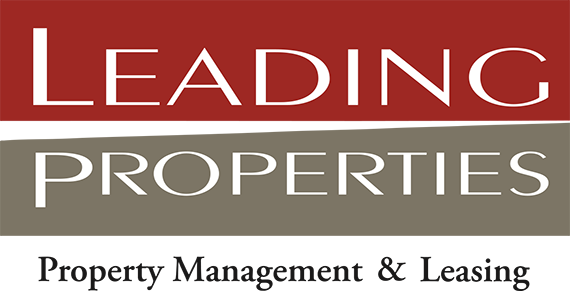5 Questions Property Owners Should Be Asking About Rent Control
When less experienced investors give up on a seemingly hopeless real estate market, that’s when savvy investors step in to scoop up deals of a lifetime.
If you’d like to become one of these savvy investors, we at Leading SF Property Management welcome you to the San Francisco real estate scene.
One of the first items you’ll need to become aware of is how the state’s AB 1482 law for rent control in San Francisco will impact your real estate investment strategy going forward. We’ve curated five questions that prospective San Francisco property owners and landlords need to ask before welcoming tenants.
#1 How Much Can I Raise My Rent Under the AB 1482 Law?
The California Tenant Protection Act of 2019 or AB 1482 went into effect on January 1, 2020.
The law caps annual rent increases at 5 percent, plus the cost of living increase or 10 percent, whichever is lower. AB 1482 applies to tenants who occupy properties for at least 12 consecutive months. Vacation rentals or short-term hotel efficiencies are not subject to the rent control laws.
Landlords may not raise rents beyond the limits of the state’s cap, but their local governments can lower the cap for properties within their jurisdictions.
In San Francisco, the Rent Board administers the local rent control laws, and it announced a 0.7 percent cap on rental increases for 1 March 2021 to 28 February 2022. If you charged your tenants $1,600 per month last year, you would multiply the base rent of $1,600 by the new rate increase of .7 percent (or .007) to calculate the allowable increase of $11.20 per month.
Why .7 percent? The .7 percent rate increase isn’t arbitrarily derived, but is based on a 60 percent increase in the Consumer Price Index from the previous year for consumers in the region.
#2 What Properties Are Exempt from Rent Control Under AB 1482?
While nearly all San Francisco properties are subject to the Rent Board’s rent control ordinance, there is one big exemption. Properties that have certificates of occupancy that are dated after 13 June 1979 are considered new construction and are not subject to rent control caps.
Not sure about the original occupancy date for your property? Check with the San Francisco Assessor’s Office to find out when your property was constructed.
There are some exceptions to the “new construction exemption.”
The most common exception is guest houses or in-law suites that are built without proper permits and documentation. If your duplex has one of these structures and you rent it out, your property may no longer be exempt from the San Francisco rent control ordinance even if all of the rental units were constructed and occupied after 13 June 1979.
Single-family homes and condominium units are usually exempt from San Francisco’s rent control ordinance as well.
#3 Can I Raise the Rent to Make Capital Improvements?
Capital improvements are any renovations or additions that increase your property’s value or extend its useful life.
These projects can include anything from installing new energy-efficient windows to getting a new roof. Keeping properties safe, habitable, and profitable by doing needed capital improvements are of primary importance to tenants, landlords, and the city. In these cases, the Rent Board allows you to pass along a portion of the costs for capital improvements to tenants.
There is a process for increasing rents for capital improvements.
Landlords have to complete the improvement, submit a request for a rental increase from the Rent Board, and receive approval before they can raise a tenant’s rent beyond San Francisco’s rent control cap. After a tenant finishes paying his or her allotted portion for the capital improvement, the landlord must lower the rent to the previously capped rate.
A tenant can request a hardship exemption by filing a Tenant Financial Hardship Application with the Rent Board.
#4 What Kind of Notices Must I Deliver for Rent Control Exemptions and Lawful Rate Increases?
There are some elements of the rent control ordinance and exemptions that require professional handling.
As the owner of a single-family home or condominium unit, you may think that your property is automatically exempt from San Francisco’s rent control ordinance. However, landlords need to provide a written notification to tenants letting them know that the single-family home or condominium unit that they want to rent is not subject to San Francisco’s rent control ordinance.
When a tenant renews his or her lease, the landlord must include the same type of notification in the lease renewal package.
Landlords who increase rents more than 10 percent must give tenants a 90-day notification. This regulation applies to rent-controlled properties that have capital improvement rent increases as well as properties that are exempt from San Francisco’s rent control ordinance.
#5 Can I Raise Rents After Tenants Move Out?
San Francisco’s rent control ordinance does not restrict landlords from increasing rental rates after a tenant moves out of a property.
This means that there is no limit on the amount of rent that you can charge for your rental property when it’s vacant — even if it’s not exempt from San Francisco’s rent control ordinance.
However, landlords must abide by state and local eviction restriction rules and can’t evict tenants unlawfully just to raise rental rates.
Learn More
The homeless crisis in our state impacts poor families and deals a devastating blow to the economy. The California Tenant Protection Act of 2019 was designed to combat this issue and deliver long-term economic benefits for every resident.
Need further guidance about navigating laws concerning rent control in San Francisco?
Leading SF Property Management is a full-service property management company that specializes in Bay Area Property Management. Our team of knowledgeable professionals has over 20 years of experience lowering vacancy rates and increasing profits for landlords in our region.
Get Your San Francisco Rent Control Questions Answered. Call Us Now! (415) 346-8600
